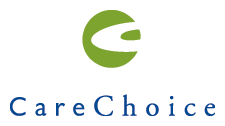Connecting Members Through Innovation and Collaboration
CareChoice continues to evolve with the changing demands of the senior care market. Originally conceived as a collective contracting entity, the organization has grown to embrace quality innovation as the core of its Member operations. This quality commitment allows the cooperative to pursue innovative payer relationships based on metrics and our facilities ability to impact patient care in a meaningful way. CareChoice is looking to the future of senior care and continually addressing challenges posed by staff shortages, population changes and customer expectations. Members strive to collaborate in the spirit of shared growth with the belief that “we are better together”, and that to provide exceptional care for patients means a continuous and evolving pursuit of excellence.
In keeping with our mission to provide financial and operational benefit to our Members through innovation and collaboration, CareChoice secures and manages collaborative quality improvement projects for its Members. Many of these multi-facility quality improvement projects have been funded through the Minnesota Department of Human Services (DHS) Performance Based Incentive Payment Program (PIPP). Below are summaries of some of the performance programs managed by CareChoice.
- Resident Centered Pain Care (RCPC), 2008-2009: A one-year project in which 18 participating nursing homes reduced the incidence of moderate to severe pain in their patients and residents.
- Resident Centered Care Connections (RCCC), 2010-2013: A three-year project to reduce avoidable hospital readmissions, enable effective transitions across care settings and improve the delivery of palliative care in 17 nursing homes.
- Resident Centered Care Force Development (RCCD), 2013-2016: A three-year project in 18 homes with goals of care force development, clinical excellence, and effective use of technology.
- Person Centered Care Connections (PCCC), 2014-2017: a three-year CMS Health Care Challenge Innovation Award (HCIA Round II) with 10 participating nursing facilities designed to enhance the discharge planning process and reduce hospital readmissions and total cost of care for post-acute patients post-discharge. This project was supported by grant number 1C1CMS331319-01-01 from the department of Health and Human Services, Centers for Medicare and Medicaid.
- Resident Centered Medication Safety (RCMS), 2017-2018: A two-year project in 18 homes designed to improve patient and resident care by decreasing unnecessary medications, associated side effects and adverse drug events including falls, impairment in cognition and function.
- Resident Centered Behavioral Health (RCBH), 2019-2020: A two-year project with 21 participating facilities designed to enhance staff training, address CMS regulations for staff behavioral health competencies and decrease resident depression and behavioral expressions.
- Resident Centered Mobility Maintenance (RCMM), 2021: A one-year project with four participating facilities focused on the use of technology to support resident mobility practices. Facilities tested the use of virtual reality (VR) and StepWatch to engage residents and staff in mobility programming.
- Skin Integrity Program (SkIP), 2022: A one-year project with twelve participating facilities focused on the prevention of pressure injuries through early identification of residents at risk for pressure injury development and the application of correlated prevention protocols.
